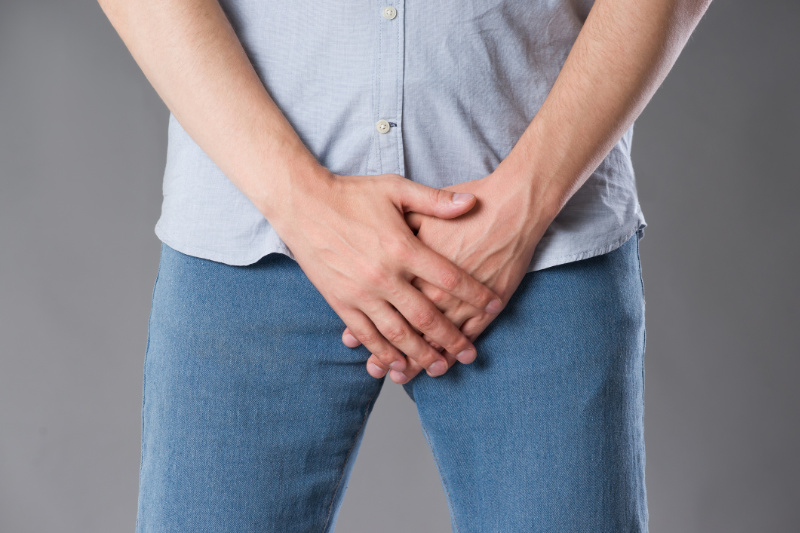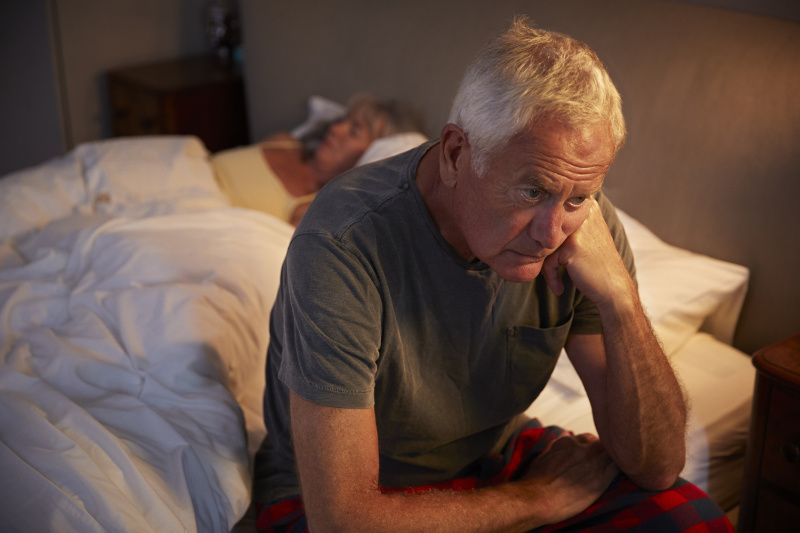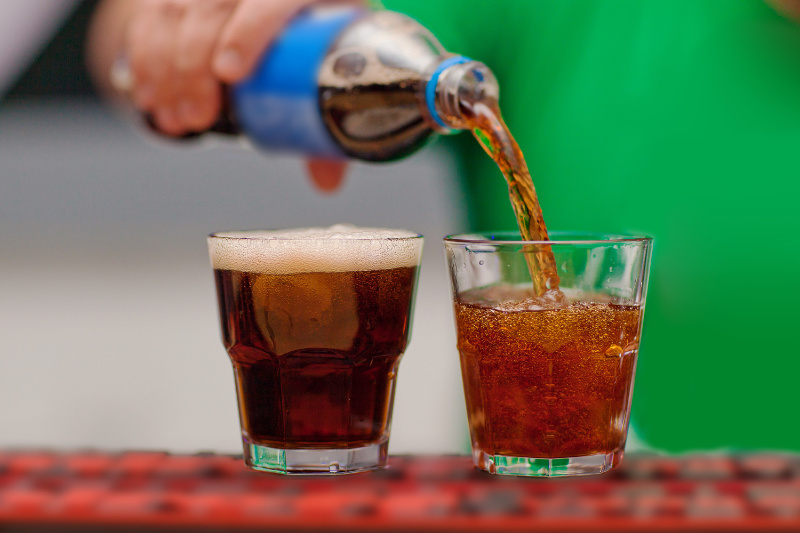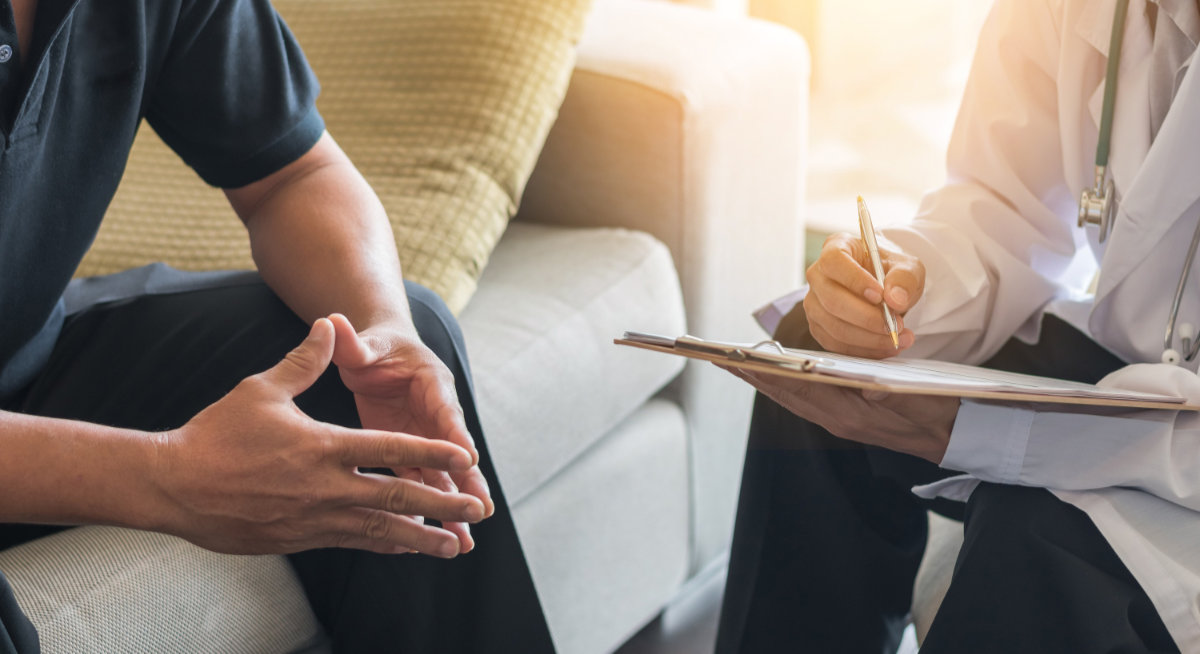You may have heard of benign prostate enlargement, but are you clear on exactly what it is? For many men over 50 worried about prostate enlargement, it can be quite confusing to sort the facts from the fiction. Wise Living spoke to medical experts about benign prostate enlargement symptoms, treatments and myths.
What is benign prostate enlargement?
First of all, the prostate is a small, walnut-shaped gland located in men’s pelvic regions; it sits between their bladder and penis and surrounds the urethra (the tube that passes urine out of the body).
Benign prostate enlargement (BPE) is a condition where the gland becomes enlarged, often causing symptoms such as needing to pee more frequently and urgently. It’s not medically serious but can be a nuisance, sometimes having a significant impact on a man’s general health and wellbeing and quality of life.

It’s important not to self-diagnose though, as the symptoms can be very similar to those of prostate cancer, so you should always get things checked by your GP if you notice any chances in your toilet habits, or any pain, discomfort or swellings in that area.
There’s also a lot that can be done to help treat and manage symptoms caused by prostate enlargement, so there’s no need to just put up with it. And with around 40% of men over 50, and 70% of those in their 70s, affected according to the NHS, it’s pretty common and nothing to be embarrassed about.
Suffering erectile dysfunction problems? Read the Wise Living guide to 5 mens health issues that men should never ignore.
What are benign prostate enlargement symptoms?
It can be difficult to determine whether symptoms are related to benign prostate enlargement, as symptoms and their intensity can vary between men. However, typically symptoms increase over time and can be an indicator of prostate enlargement. Common BPE symptoms can include:
- Urgent need to urinate
- Increased frequency in the need to urinate – you feel you need to visit the toilet more often
- Increased frequency of urination at night, known as nocturia
- It can be difficult to initiate urination
- You may not be able to fully empty your bladder
- You may experience dribbling or dripping when you have finished urinating
- Your urine stream may be erratic with stopping and starting
- You may experience a weakened, less powerful urine stream
Less common signs and symptoms include:
- Inability to urinate
- Urinary tract infection
- Signs of blood in the urine
What are the risk factors of prostate enlargement?
While benign prostate enlargement can affect all men, there are some risk factors that may increase your risk of developing BPE. Age is the main factor, but some lifestyle and medical issues may play a role according to research. Risk factors for benign prostate enlargement include:
- Family history of prostate enlargement. You may have a higher risk if a blood relative such as your father or brother develops BPE.
- Age. BPE tends to affect older men, with one-third of men experiencing severe problems by the age of 60. More than half of men will experience symptoms by the age of 80. However, BPE symptoms are rarely experienced in men younger than 40.
- Weight. Studies have found that obesity may increase your risk, while exercise and remaining fit and active can lower your risk.
- Heart disease and diabetes. Both diseases may increase the risk of BPE, along with the use of beta blockers.
Thinking about getting more exercise and keeping active? Read the weight lifting for seniors video and exercise guide for effective training.
So what do you need to know? Here, GP and Media Medics founder Dr Paul Stillman debunks five common myths about benign prostate enlargement…
1. Needing to pee at night is the only symptom – myth
It’s true that the most common symptom of an enlarged prostate is ‘nocturia’ – or needing to pee at night. However, this isn’t the only symptom to be aware of.
“When the prostate gland enlarges, it constricts the urethra, impeding the easy flow of urine from the bladder,” says Dr Stillman. “This can cause difficulty and hesitancy starting to urinate, with a weak flow and the feeling afterwards that there is more to come.” You may also return to urinate minutes after having finished.

“Until it is properly treated, nocturia may be an inevitable part of BPE,” adds Stillman. “An obvious point to note is that the more you drink, especially just before bedtime, the more frequent nocturia becomes – so restricting drinks, especially alcohol or caffeine, for a couple of hours before hitting the hay will help.”
It’s also a good idea to empty your bladder immediately before bed and keep the lights low when you do have to go, to encourage getting back to sleep quickly.
2. It’s fine to ignore benign prostate enlargement symptoms – myth
First and foremost, as mentioned, the benign prostate enlargement symptoms can be similar to those of prostate cancer – the most common male cancer in the UK. Prostate cancer can often be successfully treated but early diagnosis is vital, so it is always advisable to get any symptoms or unusual changes checked by your doctor, sooner rather than later.
“My catheter was removed a week after surgery but unfortunately, I found I was totally incontinent.”
Tony knows what it’s like to live with urinary incontinence. Here he tells us how he dealt with the emotional impact and what treatments he tried: https://t.co/Jvnl2jHnT7 pic.twitter.com/pCKOsTxMJ6
— Prostate Cancer UK (@ProstateUK) July 24, 2019
If cancer is ruled out and BPE is diagnosed, although not life-threatening, the condition can still have a big impact on a man’s physical and mental health if left unchecked, and there really is no need to ignore it.
“For the majority of men, a benign prostate enlargement is a nuisance, an inconvenience,” says Dr Stillman – but it can sometimes have a hefty effect, particularly if the need to urinate becomes very urgent and difficult to control.
“Incontinence problems can be common in men with BPE, especially if it is not possible to find a toilet when required,” he says. “If the frequency extends into the night, it can often result in poor sleep quality too, which will have a knock-on effect on energy levels throughout the day.”
Some men may find it has a negative effect on their sex life too. “There is a link between prostatic enlargement and erectile dysfunction, although the cause is not clear,” says Dr Stillman. “The problems of urinary frequency, disrupted sleep and the associated anxiety can all upset the delicate mechanism that results in sexual performance and satisfaction.”
If you’re reading this right now, chances are you use social media regularly. Did you know you can contact our Specialist Nurses on Twitter and Facebook? 📱 💻
Simply comment or DM us your questions or concerns, and one of the team will respond ASAP.
We’re here for you. pic.twitter.com/fTZQHBsuz5
— Prostate Cancer UK (@ProstateUK) July 29, 2019
3. Men with BPE are more at risk of developing prostate cancer – myth
“BPE is not caused by prostate cancer and men with an enlarged prostate actually have no extra risk of developing it,” assures Dr Stillman.
Still, even if you’ve previously been diagnosed with BPE, it’s important to check in with the doctor if you notice any changes in your symptoms, or they get worse or aren’t responding to treatments – as you may still need to be checked for anything else that might be going on.
“Although prostate cancer is the most common form of cancer in men, it often progresses slowly and the results of treatment are generally good,” says Dr Stillman. “Even so, early diagnosis is always important, so every man developing the urinary symptoms (finding it difficult to pee, having a weak flow of urine, needing to pee urgently) must consult their doctor to get it checked.”
4. There are no treatments for BPE
There are a number of things that can help, depending on the severity of your symptoms.
In the first instance, your GP may suggest you make some lifestyle changes, such as drinking less caffeine, fizzy drinks and alcohol, which can help. Other self-management techniques can include ‘bladder training’, which your GP can advise on.

If lifestyle changes aren’t enough, options may include medication, catheters and, in some cases where symptoms are severe, surgery.
Dr Stillman believes over-the-counter natural remedies – such as AlchemLife’s ProQuil Natural Prostate Support (£29.99 for 14 capsules) – may also help in some cases. This is a food supplement that contains Pygeum and Saw Palmetto oils.
“Pygeum is a natural herbal remedy, prepared from the bark of the Africa cherry tree,” says Dr Stillman. “The bark has a long tradition in herbal medicine and research has found it to ease the frequency of prostatic disorders, and more recently, it has been shown to slow the growth of prostate cells.”Saw Palmetto, meanwhile, is a tree whose berries, Dr Stillman claims, are sometimes used to decrease symptoms of prostatic enlargement. “It does not directly reduce the overall size of the gland but appears to work by shrinking the inner lining, which in turn relieves some of the constriction of the urethra, carrying urine from the bladder,” he says.
5. Benign prostate enlargement symtoms only affect men over 70
The condition is associated with ageing, and as Dr Stillman notes, “the most common risk factor is age.” However, many men begin to experience signs and symptoms after the age of 50 (with the risk increasing further in their 60s and 70s) and it is possible for some men to be affected even younger.
Bottom line? Whatever your age, if you notice any new or unusual symptoms, check in with the GP. They’ll be able to arrange any tests or treatment if necessary, or reassure you that everything’s fine.































































